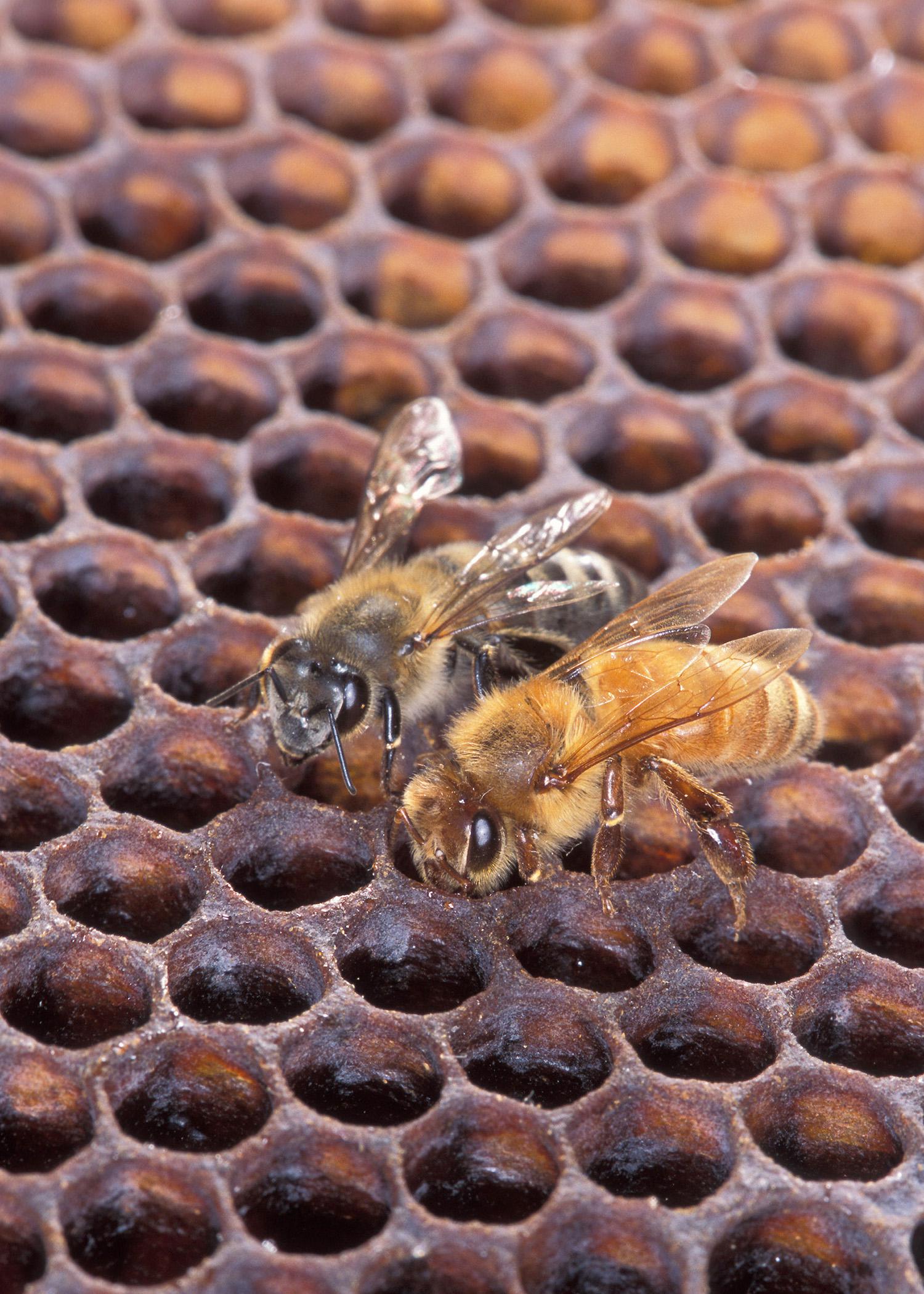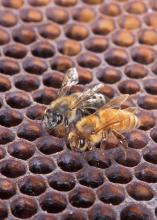Information Possibly Outdated
The information presented on this page was originally released on February 28, 2013. It may not be outdated, but please search our site for more current information. If you plan to quote or reference this information in a publication, please check with the Extension specialist or author before proceeding.
Officials are ready when Africanized bees arrive
MISSISSIPPI STATE – Beekeepers and those who work with bees are taking steps to prepare for the arrival of Africanized honeybees in the state.
Jeff Harris, apiculture specialist with the Mississippi State University Extension Service, said that although Africanized bees are more defensive than European bees, it is wrong to think of them as aggressive.
“Bees respond to stimuli they perceive as a threat. The difference is in the level of threat they perceive,” Harris said. “Africanized bees come from a climate that has a lot more predators for bees and honey, and they are more likely to respond to a stimulus as a threat than their European counterparts.”
For example, Harris said a person can walk 30 feet from a colony of European bees without them acting threatened. Africanized bees, however, may perceive a threat in a person walking 100 yards away from their colony.
“When Africanized bees respond to a threat, they respond faster and in greater numbers,” Harris said. “If you have disturbed bees, the best advice is to run as fast as you can in a straight line with your hands over your face.”
Harris, who is also a researcher for the Mississippi Agricultural and Forestry Experiment Station, said Mississippi officials have a plan to follow when Africanized bees spread through the state. Beekeepers will be trained how to work with these more defensive insects, and exterminators must be certified before they can perform bee removals.
“In an area with Africanized bees, you have to behave as if they are all Africanized,” Harris said.
In November, the Mississippi Department of Agriculture and Commerce confirmed the presence of an established colony of Africanized honeybees in Harrison County. Kenneth Calcote, plant pest division director, said the colony was destroyed on Oct. 29.
Officials set up a perimeter and are looking for more Africanized honeybees in Harrison County after a colony was found last fall under a house in Pass Christian.
“According to the homeowner, the bees had arrived by swarm a few weeks earlier,” Calcote said. “Domestic European honeybees typically do not swarm this late into the fall season, which prompted the Mississippi Department of Agriculture and Commerce to destroy the colony as a precaution and also collect a sample for analysis.”
No other colonies of Africanized bees have been found in the area, but officials statewide have an action plan for when these defensive bees become established in the state. To date, the bees are established in New Mexico, Arizona, California, Nevada, Utah, Oklahoma, Arkansas, Texas, Louisiana, Georgia and Florida.
The Extension bee specialist said bees cannot be identified as Africanized or European by sight.
“A reliable way to identify Africanized bees is by using morphometrics, which takes the measurements of certain body parts known to be different on Africanized and European honeybees,” Harris said. “You can also tell the difference by behavior.”
Bees’ work in pollination is vital to agriculture and horticulture, and these insects have a significant impact on the food that arrives on the plates of Americans. Harris said Mississippi honey production had an estimated value of $3.2 million in 2011, and bees are thought to have made a $204 million contribution to agriculture through pollination.
While bees in the great outdoors are a great benefit, bees in houses or swarming near people can present a threat. Numerous resources are available for help, including a newsletter at http://tinyurl.com/beeproblems that describes what to do for problem bees. Harris recommended Mississippians dealing with a bee colony or swarm first call a pest control operator for help. Harris at (662) 325-2976 or Calcote at (662) 325-3390 may be able to provide more information.




